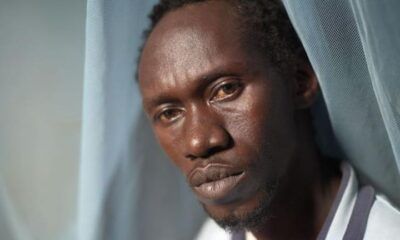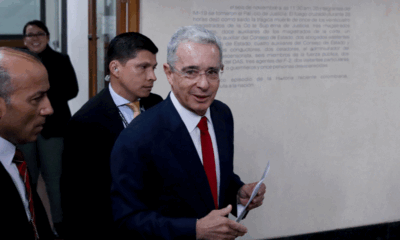INTERNACIONAL
Christians in Africa face worrying rise in killings, persecution and displacement
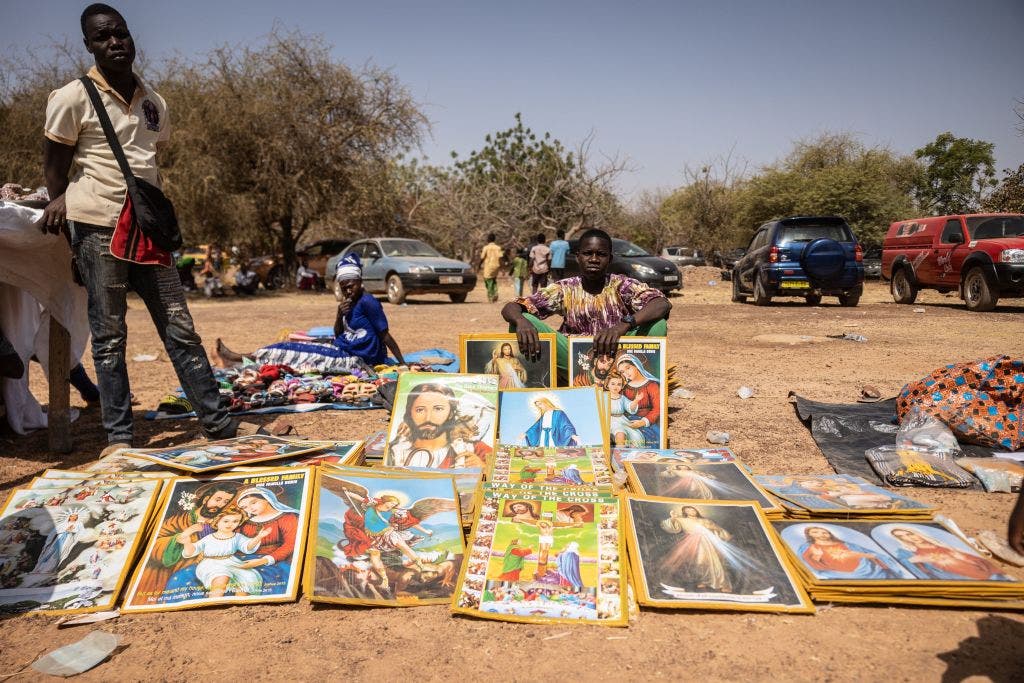
JOHANNESBURG — Christianity is in deadly crisis in more than half of Africa’s 54 countries, sources say. Christian groups contacted by Fox News Digital say the faithful are being persecuted, killed and displaced in 28 countries on the continent.
The situation is the worst in Nigeria. Mission group Open Doors US told Fox News Digital its research reports that «nine out of 10 Christians killed for their faith in 2023 were in Nigeria. However, this number is likely higher, as many deaths go unreported.»
«Nigeria is one of the deadliest places on earth to be a Christian,» Ryan Brown, Open Doors US CEO, told Fox News Digital. «Of the nearly 5,000 Christians killed for their faith in 2023 worldwide, a staggering 82% of them were in Nigeria.»
WORLD LOOKS OTHER WAY AS CHRISTIANS ‘KILLED FOR SPORT BY JIHADISTS’ IN NIGERIA
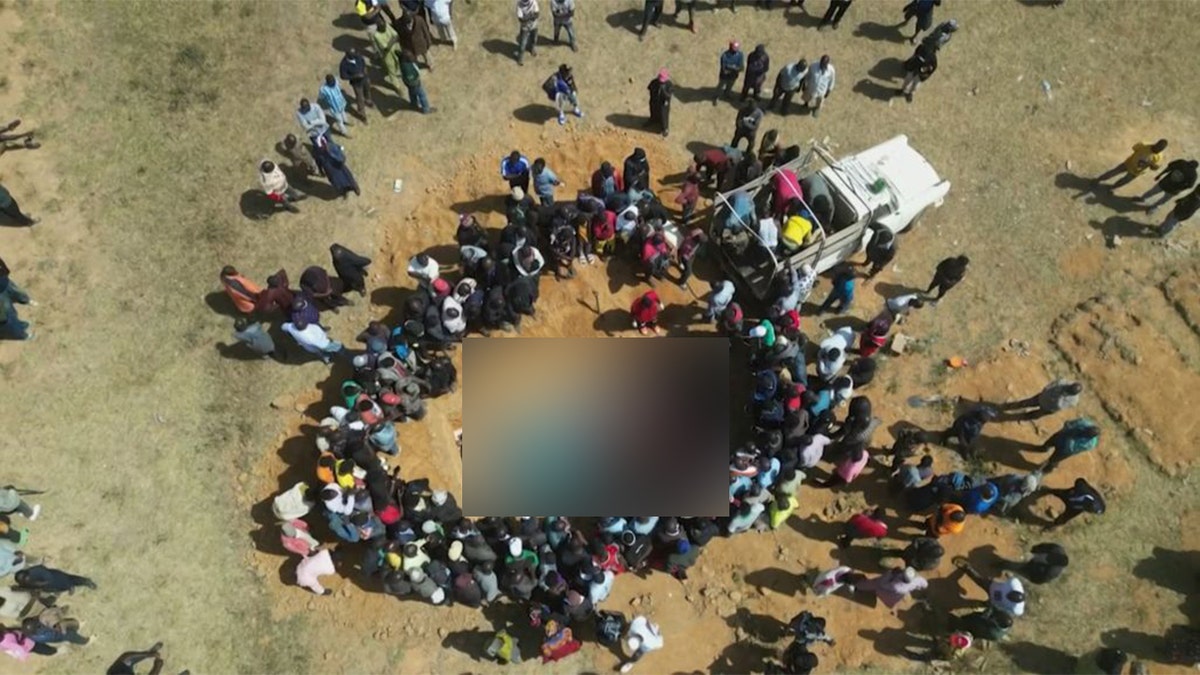
Family members gather Dec. 27, 2023, to bury loved ones killed by armed groups in Nigeria’s central Plateau State in Maiyanga village, Nigeria. (Kim Masara/AFPTV/AFP via Getty Images)
The Nigerian research group Intersociety, the International Society for Civil Liberties and the Rule of Law, calls the killing of Nigeria’s Christians genocide and puts the death toll higher, claiming over 8,000 Nigerian Christians were killed or abducted from January 2023 to the end of January 2024. Most of them were reportedly savagely hacked to death with knives. Intersociety says over 18,500 places of Christian worship were destroyed across Nigeria from 2009-2023.
And this slaughter is continuing, Intersociety’s Emeka Umeagbalasi told Fox News Digital.
«(An) estimated 500-600 Christians are believed to have been hacked to death for professing to be Christians in Nigeria, covering January to the first week of April 2024,» Umeagbalasi said. «They are being killed, raped and displaced, and their homes and, sometimes, churches burnt. In some occasions, they are forced, under pain of death, to publicly change their religion to Islam.»
«With the rise of radical Islam in Africa, there is a definite increase in the targeting and persecution of Christians,» Todd Nettleton, host of the Voice of the Martyrs Radio Network told Fox News Digital. He added that these attacks come in a wide range, from «well-known groups like Boko Haram in Nigeria and al-Shabaab in Somalia, to less-well-known but equally violent groups in northern Mozambique, Democratic Republic of Congo and other nations.
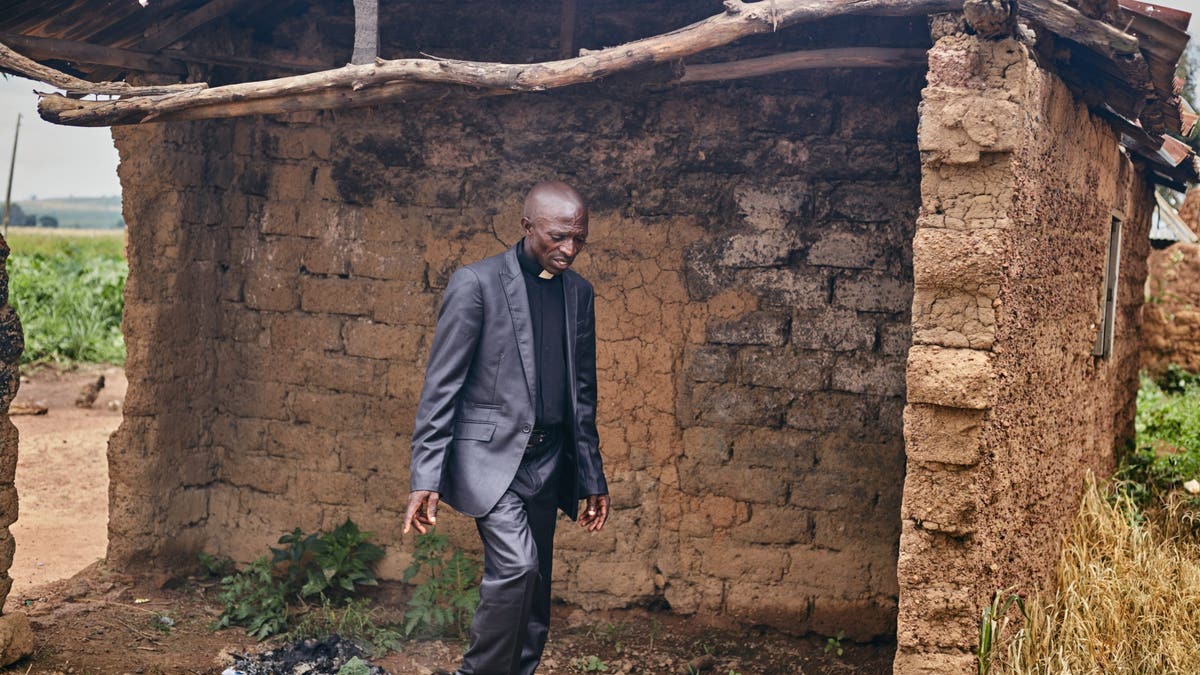
Pastor Zachariah survived one of many recent attacks. He lives in a village close to the town of Mangu, Plateau State (Middle Belt of Nigeria). In May 2023, there was a wave of attacks by Fulani militants in that area. (Open Doors US)
«Currently, there are 28 countries on the African continent listed on the Open Doors’ US 2024 World Watch List, nations where Christians routinely face oppression, harassment and violence because of their faith in Christ.»
Despite an estimated 46% of the population being Christian, Nigerian Christians are often ripped from their homes too, with Brown of Open Doors US reporting that «of the 34.5 million displaced people across sub-Saharan Africa due to political instability, conflict and extremism, an estimated 16.2 million are Christians.»
Brown added, «As Fulani militant (Islamist) herdsmen wish to claim land in the middle of Nigeria, where there is the best grazing, they attack Christian villages, kidnap their people, burn their homes and destroy their crops, claiming the land for themselves.»
WORLD, PROTESTERS SILENT ON SUDAN MASSACRES: ‘NO MOB OUTSIDE THE WHITE HOUSE’
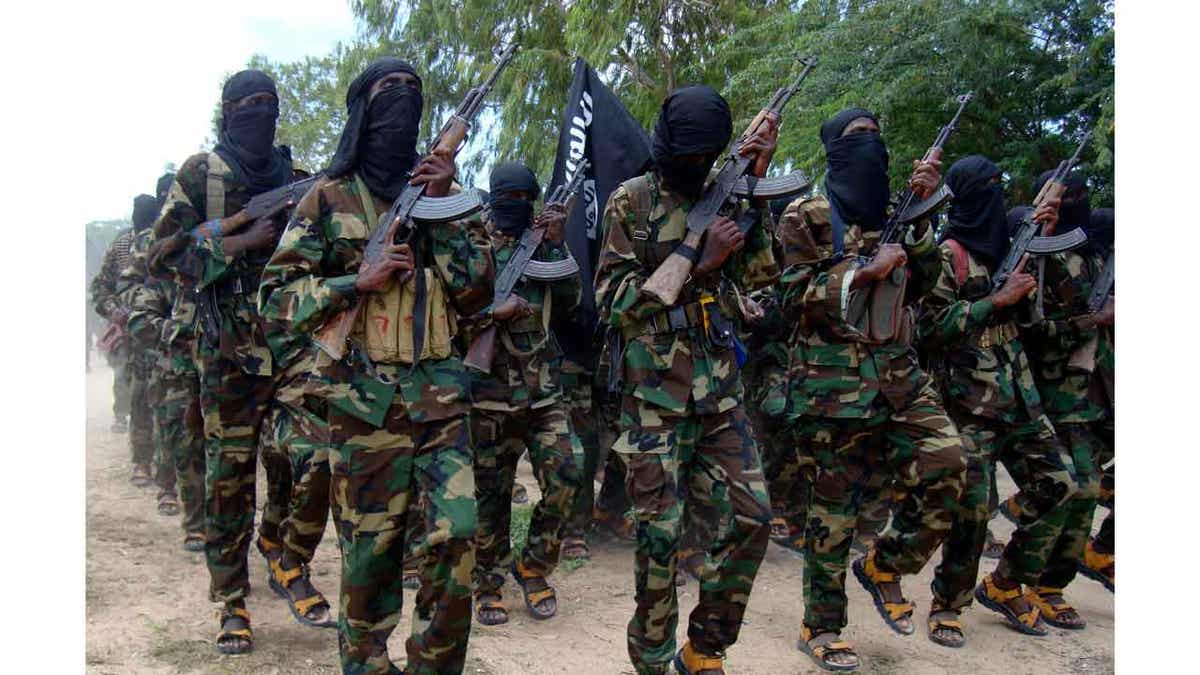
Al-Shabaab fighters conduct a military exercise in northern Mogadishu’s Suqaholaha neighborhood in Somalia Sept. 5, 2010. (AP Photo/ Farah Abdi Warsameh, file)
Persecution in Nigeria is not new. Boko Haram Muslim militants kidnapped Maryamu Joseph when she was just 7 years old. She managed to escape nine years later, telling the Aid to the Church In Need (ACN) agency, «I suffered so much at the hands of these heartless, ruthless people. They put the Christians in cages, like animals. The first thing they did was forcefully convert us to Islam. They changed my name to Aisha, a Muslim name, and warned us not to pray as Christians, or we would be killed.»
Catholic teacher Emmanuel Joseph witnessed a recent attack on a Catholic and a Baptist Church in Rubuh, in Nigeria’s Kaduna State.
«Mass had just started when we heard guns firing. Parishioners started running everywhere,» Joseph said. «Coming into the church compound, they shot three members who had left the church. They also attacked the local Baptist church and abducted 36 members of the congregation, mostly women, and killed a man there also. We are only focused on how to stay alive, looking upon God for safety in the belief that He will fight back for us.»
«Religious persecution in the north is systemic,» Matthew Man-Oso Ndagoso, the archbishop of Nigeria’s Kaduna State claimed, «I cannot build a church, yet the government employs and pays imams to teach in schools. Every year they have money to build mosques in the budget but will not let you build churches».
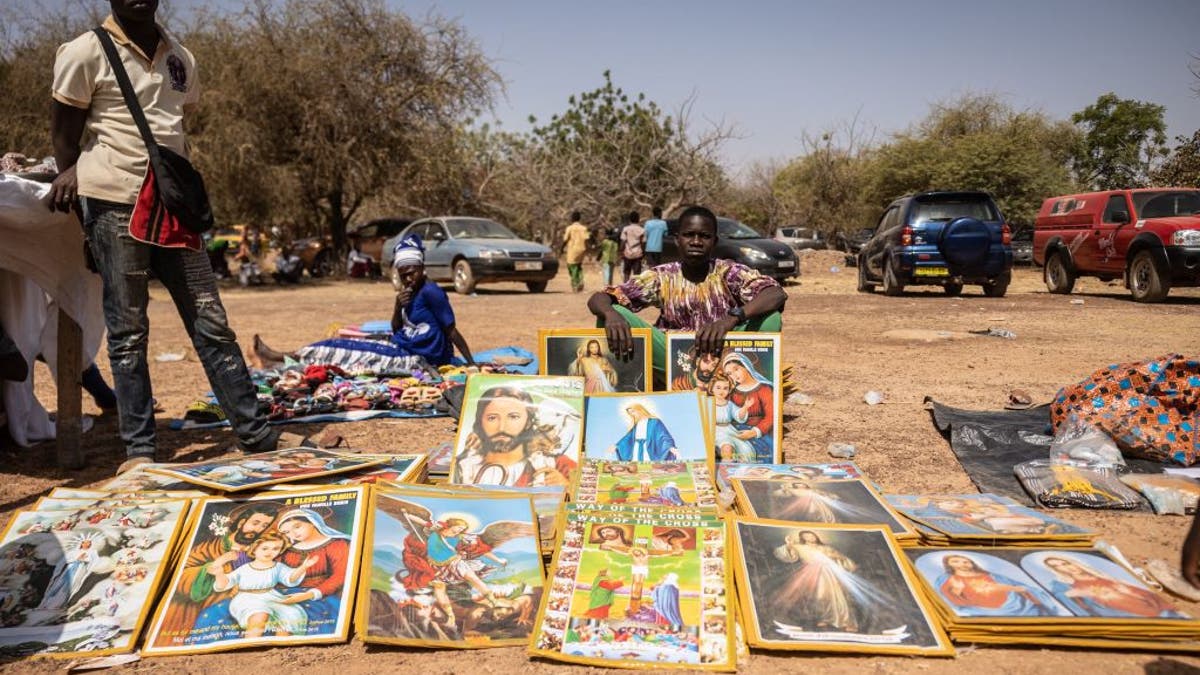
A boy sells objects of piety during a pilgrimage to Yagm on the outskirts of Ouagadougou Feb. 5, 2023. (Olympia de Maismont/AFP via Getty Images)
Reports of persecution continue to flood in from the Sahel region — Chad, Mali, Niger and Burkina Faso. The latter country’s bishop, Justin Kientega, told ACN parts of his diocese have become no-go areas as jihadists work to impose radical Islam on the population.
«The terrorists gather people and tell them not to go to school,» he said. «They instruct men to grow out their beards and women to wear the Islamic veil.»
In Sudan, Brown of Open Doors US said, there’s more persecution of Christians.
«There have been 165 churches closed,» Brown said. «Others have been attacked and destroyed. We see in Sudan and so many other places that those who oppose the Christian faith will use these volatile situations as an opportunity to lash out against our brothers and sisters. As we pray for an end to the violence, we remember these brave men and women and pray for their protection as they continue to risk so much.»
CHRISTMAS EVE ATTACK IN NIGERIA LEAVES AT LEAST 140 PEOPLE DEAD, HOMES BURNED
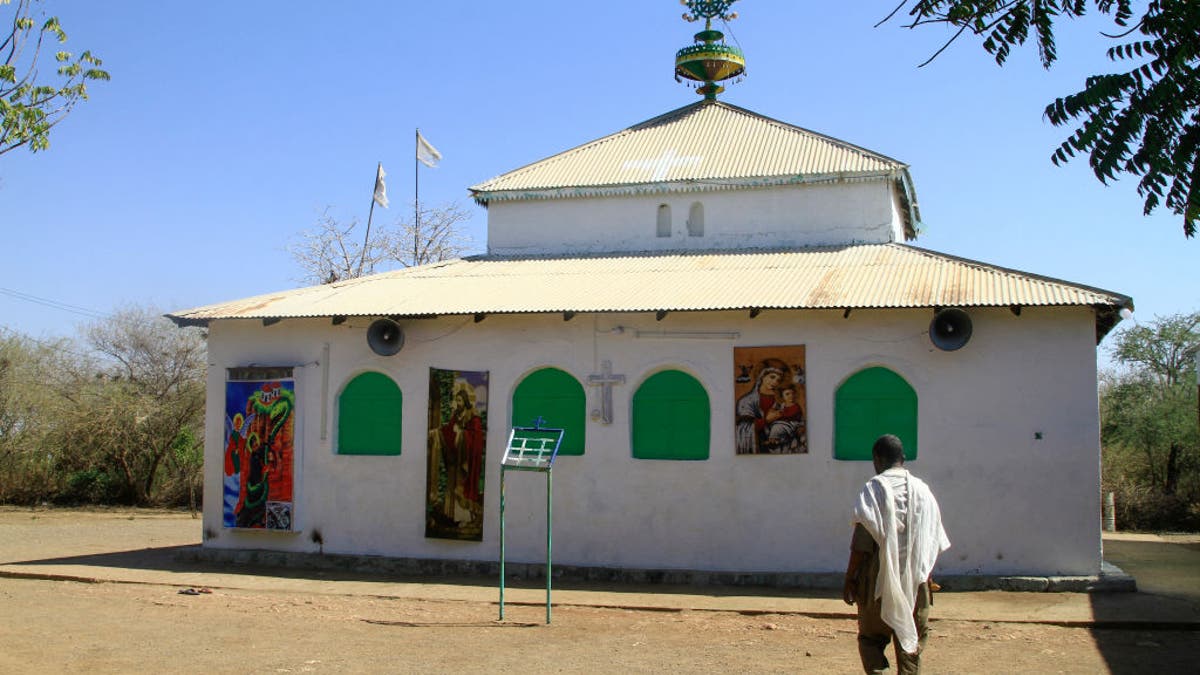
A Sudanese man walks in the courtyard of a church in the Um Gulja former refugee camp in Sudan’s eastern Gedaref state Dec. 15, 2023. (Ebrahim Hamid/AFP via Getty Images)
Sudan’s year-long civil war has displaced some 8.2 million people, according to this month’s figures from the U.N.’s Office for the Coordination of Humanitarian Affairs. But Christians are only a minority here, an estimated 5% of the population.
Sudan researcher Eric Reeves told Fox News Digital it’s difficult when, for example, so many buildings of every type are being bombed in Sudan to say the burning of churches is a particular attack against Christians.
«There has certainly been an underlying dislike of the long Christian presence in Sudan, going back to the Bashir regime and even longer … confiscation of church property and curtailment of Christian activities in various ways. But the present situation is simply too chaotic to make generalizations.»
Christians are being targeted in Mozambique too. According to ACN, missionaries, priests and Christians generally have had to flee the Northern Cabo Delgado region.
«The activities of Islamic insurgent groups have intensified in the region, creating an atmosphere of fear and insecurity,» according to ACN.
The UNHCR says over 1 million people have been displaced since fighting started in 2017.
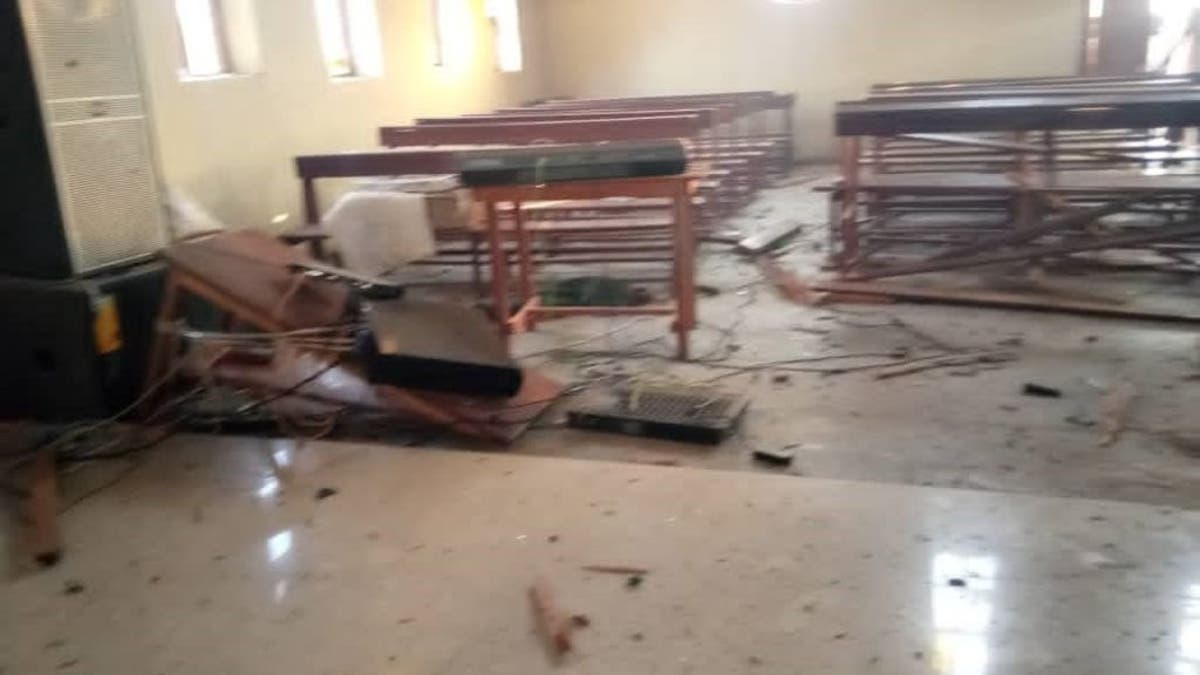
A photo taken with a mobile phone June 27, 2021, shows the site of a Catholic church after an explosion in Beni city of North Kivu province, Democratic Republic of the Congo DRC. (Alain Uyakani/Xinhua via Getty Images)
Attacks and destruction and burning of chapels in at least 12 Mozambican communities by groups related to Islamic State have been reported so far this year.
«Our people carry only what they can in a bundle on their heads or on the family bicycle,» The Bishop of Pemba in Northern Mozambique, António Juliasse, told ACN. «Their greatest risk is to become forgotten faces, drowned out by the other wars in the world.»
A State Department spokesperson told Fox News Digital officials are «deeply concerned about rising levels of persecution globally, including of Christians. We note with grave concern that reports of intolerance and harassment against Christians around the world are increasing and more widespread. No one should ever have to fear for their personal safety or the safety of their religious institutions.
«Members of Christian communities, or those wishing to join, face limits on their rights to freedom of religion or belief in every world region and have been the target of repeated terrorist and violent attacks by mobs and violent extremists, including in Africa.
JIHADIST AND NUCLEAR THREAT AS AFRICAN COUNTRY TELLS US TO LEAVE AMID RUSSIAN AND IRANIAN GAINS
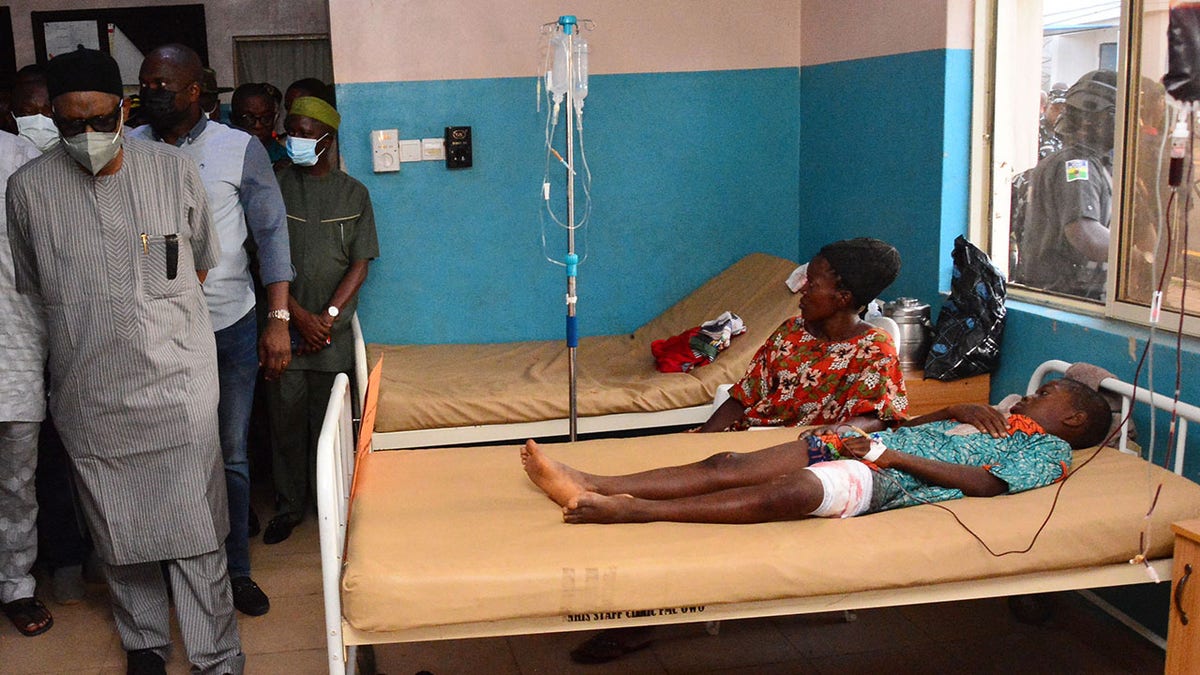
State officials walk past injured victims on hospital beds being treated for wounds after an attack by gunmen at St. Francis Catholic Church in Owo town, southwest Nigeria, June 5, 2022. (AFP via Getty Images)
«The Department of State regularly engages governments, at all levels, to advocate for improvements to religious freedom, including ending violations impacting Christians. We speak out about these issues regularly and report on these developments in the International Religious Freedom report. The United States Government and the Office of International Religious Freedom uses it as a starting point for advocacy efforts that span the entire year and beyond.»
The Voice of the Martyrs’ Todd Nettleton told Fox News Digital he would like to see more action.
«It is important for our government, and other free-world governments, to identify and call out those who attack and persecute religious minorities — whether they be governments or terrorist groups,» Nettleton said. «The State Department issues its annual list of Countries of Particular Concern, which is a start, but more could certainly be done to shine a light on the suffering of religious minorities facing violent attacks in Africa and other places.»
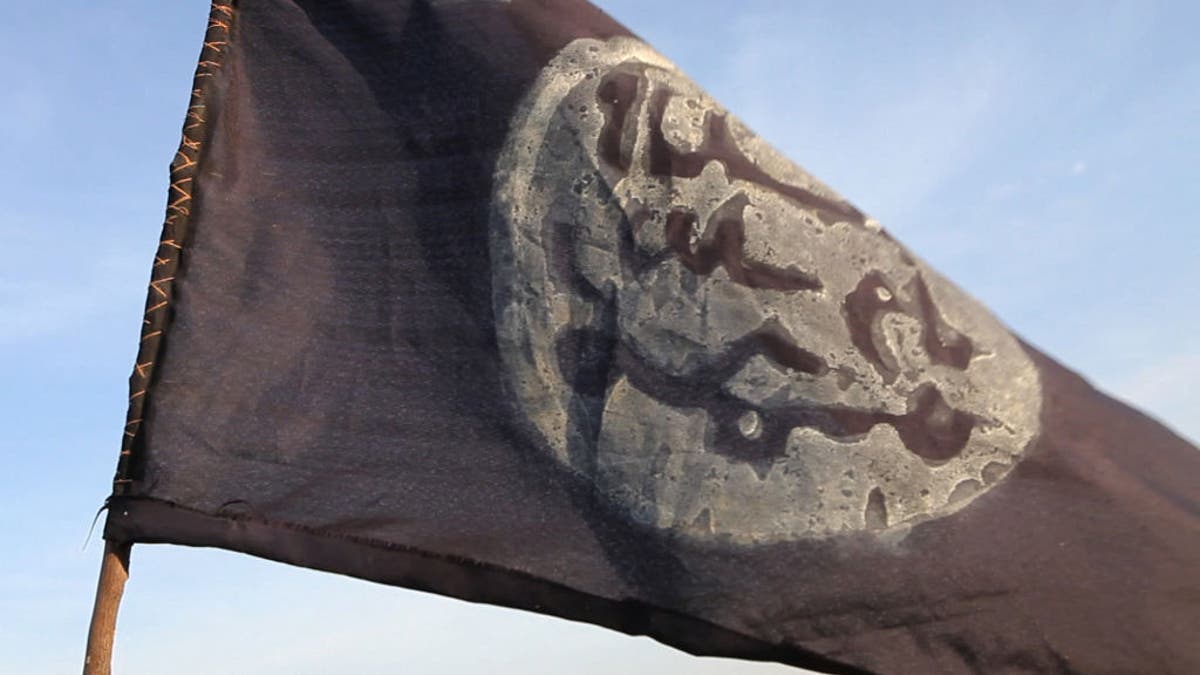
A Boko Haram flag flutters from an abandoned command post in Gambaru, which is deserted after Chadian troops chased them from the border town on February 4, 2015. (Stephane Yas/AFP via Getty Images)
«Religious freedom is often called ‘the first freedom,’ and therefore should be a vital facet of our government’s interactions with other nations — even at the risk of offending foreign governments with whom we might want to work on profitable trade or other agreements.»
«The U.S. government should be advocating for the Nigerian government to end impunity,» Brown of Open Doors US told Fox News Digital. «For too long, extremists and groups such as Fulani militants have committed violence against Christians and various ethnic groups with no accountability. We need to urge the Nigerian government to take a strong stance against these perpetrators and break the cycle of violence that continues to expand throughout sub-Saharan Africa.
«We need the U.S. government to take a strong and vocal stance on these attacks and the insecurity they are creating.»
CLICK HERE TO GET THE FOX NEWS APP
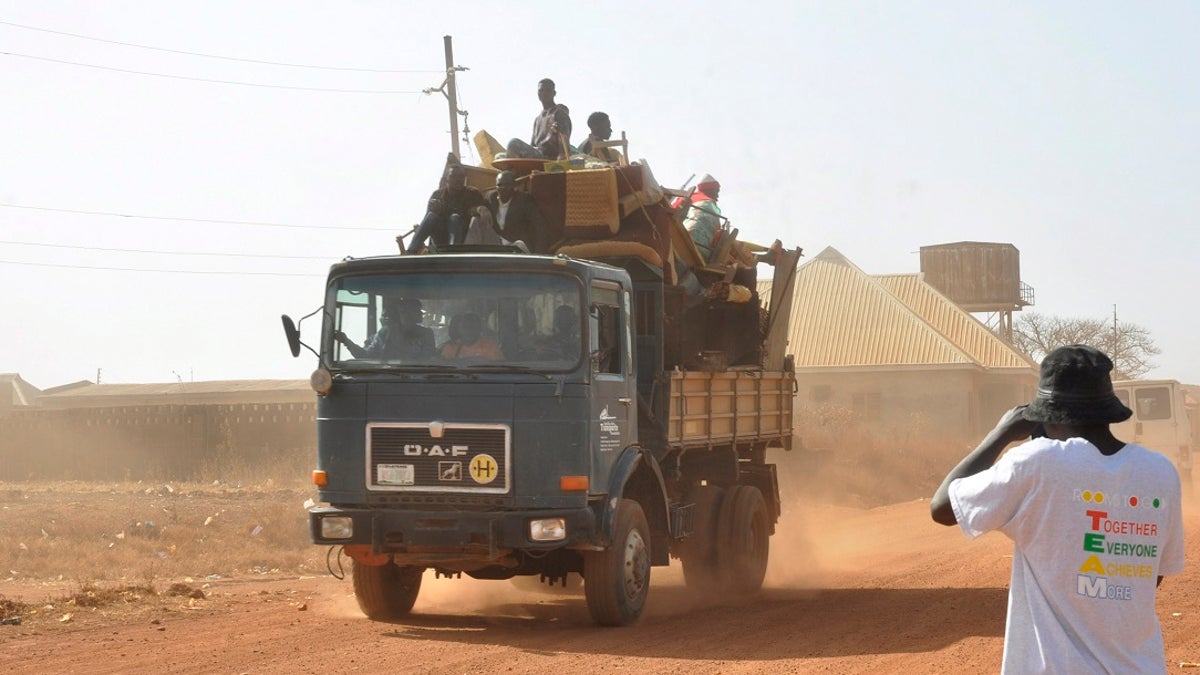
People flee following an attack by gunmen in Bokkos in north central Nigeria. (AP)
In Burkina Faso, Bishop Kientega says Christians are prepared to die for their faith, rather than be forced to embrace Islam.
«Many of them accept the possibility of death,» Kientega said. «They refuse to remove their crosses, and they refuse to convert. They always find other ways to live their faith and pray.»
Fox News Digital reached out for comment to the Nigerian presidency, the Nigerian Foreign Ministry, the Nigerian U.S. Embassy and the Nigerian Police Force but did not receive a response.
INTERNACIONAL
Gran Bretaña: murió el ex ministro de Defensa de Margaret Thatcher durante la guerra de Malvinas

Rechazaron su renuncia
Miloska, su amor yugoslavo
-
POLITICA3 días ago
Ricardo Jaime se entregó en Comodoro Py: cumplirá su condena por la tragedia de Once en prisión
-
POLITICA2 días ago
Javier Milei y el gabinete felicitaron a Donald Trump: “Puede contar con Argentina para llevar a cabo su tarea”
-
POLITICA1 día ago
El Gobierno advirtió que cerrará Aerolíneas Argentinas si los gremios no frenan las medidas de fuerza
-
INTERNACIONAL2 días ago
¿A qué hora se conocerán los resultados oficiales de las elecciones en Estados Unidos 2024?
-
ECONOMIA3 días ago
Elecciones EE.UU.: El ‘arma de doble filo’ que puede alargarse en el tiempo Por Investing.com
-
ECONOMIA3 días ago
Meta mantiene la prohibición de nuevos anuncios políticos tras las elecciones Por Investing.com

